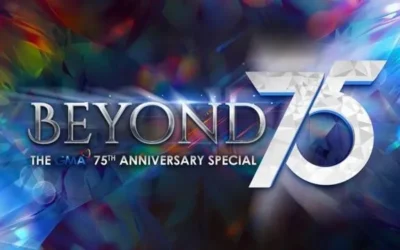Keith Richards Responds to Jimmy Page: A Clash of Guitar Legends
The world of rock ‘n’ roll is rife with legends, and few have been as influential as Keith Richards of the Rolling Stones and Jimmy Page of Led Zeppelin. Both guitarists have not only shaped the sound of their respective bands but have also left an indelible mark on the music industry as a whole. Recently, a war of words has erupted between these two titans, with Richards offering a candid assessment of Page’s career.
Setting the Stage: A Legacy of Sound
To understand the current tension, one must first appreciate the legacy each of these artists has crafted. Keith Richards, often dubbed the ‘human riff,’ is known for his gritty guitar riffs and the rhythmic backbone he provides for the Rolling Stones. On the other hand, Jimmy Page, as the mastermind behind Led Zeppelin, is celebrated for his revolutionary approach to rock guitar, melding blues and folk with an electric edge.
Both musicians have experienced phenomenal success, but there always seems to be an underlying rivalry, particularly when it comes to their respective bands’ perceived supremacy in the rock hierarchy. While both luminaries have made their peace over the years, Richards’ recent comments have reignited the flames of comparison.
The Controversial Remarks
In a recent interview, Keith Richards made headlines with his response to Jimmy Page’s previous remarks about his own guitar playing. Responding to criticism that he felt was unjust, Richards stated, “I always felt there was something a little hollow about it,” referring explicitly to Page’s music. These words, stark and unfiltered, have since sent shockwaves through the rock community, causing fans and critics alike to scramble for context.
Richards’ Perspective: The ‘Hollow’ Sound
Richards elaborated on his statement by unpacking what he perceives as a lack of emotional depth in Page’s work. He argues that while Page might be technically proficient, he often gets lost in the grandeur of his own riffs and solos, sacrificing the raw, unvarnished emotion that characterizes much of the Stones’ own music. In a genre that thrives on authenticity and heart, it’s a bold claim to suggest that a rock god like Page might fall short in one of the most vital aspects of songwriting and performance.
This perspective from Richards might be surprising, especially considering Led Zeppelin’s monumental success. Many fans would argue that Page’s intricate compositions and legendary live performances speak for themselves. Yet, Richards fiercely defends his position, pointing out that the essence of rock music has always been a direct connection to the audience—a connection he feels sometimes eludes Page.
A Look into Their Artistic Dissonance
The notion of ‘hollowness’ Richards refers to could be interpreted as a difference in artist philosophy. While Page often built songs around elaborate arrangements and virtuoso guitar solos, Richards has remained a proponent of simplicity and raw energy. He believes that the spirit of rock should echo through straightforward riffs, punchy lyrics, and a captivating stage presence, something that Led Zeppelin is sometimes perceived as lacking in favor of grandiosity.
This difference in philosophy extends beyond the music itself and seeps into their performance styles and public personas. Richards is known for his dynamic, unpredictable stage presence, akin to a jazz musician, whereas Page’s performances often lean towards meticulous precision, focusing on technical excellence. While both have their merits, Richards is quick to label Page’s style as somewhat sterile or devoid of that ‘rock and roll spirit’ he so cherishes.
A Response or a Duel?
With Richards’ words becoming a hot topic, one must wonder whether Page will retaliate or perhaps brush off the comments as just a part of the ongoing rock drama. The media is already buzzing about the potential for a guitar-centric showdown, but many experts assert that such feuds often play out more theatrically in public than in private. Both musicians have similar backgrounds, having risen through ranks filled with hardships, and they have always respected and admired each other’s craft, even amidst the banter.
Reflecting on Rivalry
The inherent rivalry between the Stones and Zeppelin is not new, serving as a plot twist in rock history. Fans often found themselves in camps, siding with one band or the other, creating a rich tapestry of music culture from which future generations have emerged. However, it’s worth noting that Richards and Page have, at various times, acknowledged one another’s contributions, actively dismissing the idea that a rivalry would overshadow their respect for each other’s artistry.
What Lies Ahead: The Future of Rock?
As we move further into the 21st century, the format and direction of rock music continue to evolve, blending genres and sensibilities seamlessly. Richards’ remarks about Page prompt reflection on the essence of rock: is it merely technical prowess, or is it also about the emotional connection to the audience? As new artists rise, with their varied interpretations of what rock means, this ongoing conversation remains vital. Richards and Page represent two corners of the same musical universe, each with their own idiosyncrasies, strengths, and weaknesses.
In many ways, disputes like this bring to light the multi-faceted nature of rock music, where not all artists seek to accomplish the same goals, and success can be measured in countless ways. In time, as both legends continue to produce new music and influence younger artists, the conversation they have ignited about creativity, sincerity, and what it means to be ‘rock and roll’ will remain relevant.
The Conclusion: Crafting Legacy
As we reminisce about the fiery exchanges between Richards and Page, one thing becomes explicitly clear: each musician leaves an unmistakable mark on the world of music. Whether you favor the gritty allure of Richards or the ethereal musings of Page, it is undeniable that both continue to inspire. So while the debate may continue, what remains is an appreciation for the artists who shaped the sound of a generation and the storied history that binds them. This latest tit-for-tat serves as a reminder that even legends are opinionated, and the clash of ideas only serves to enrich the tapestry of rock ‘n’ roll.







